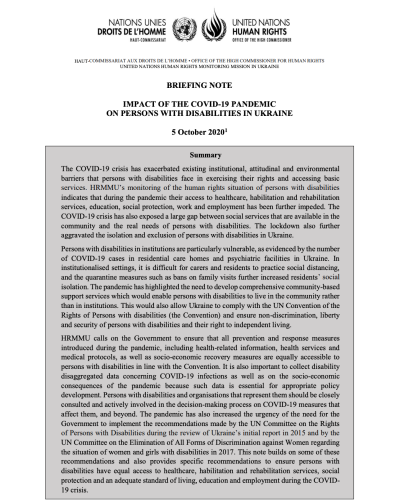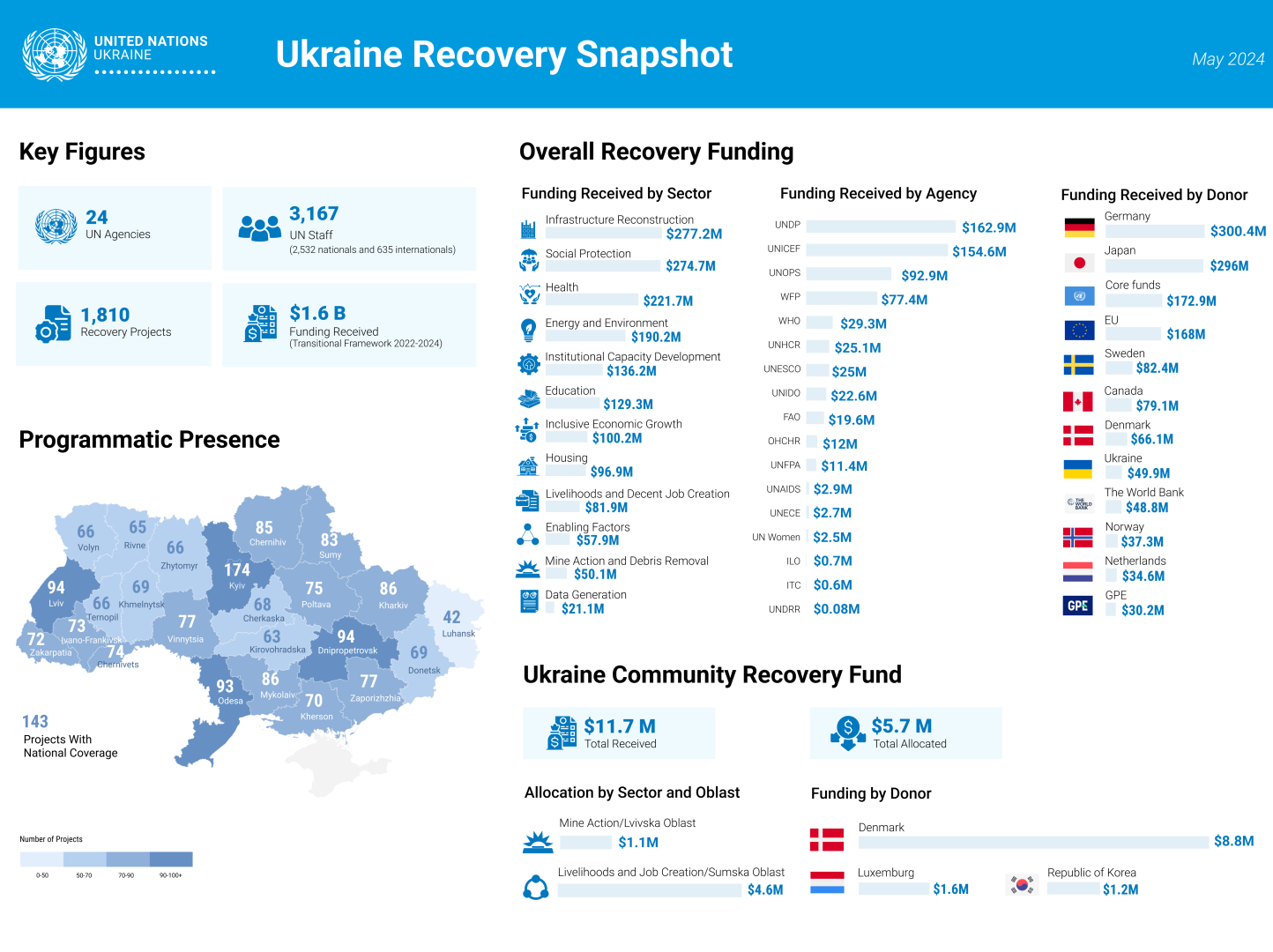Briefing Note: Impact of the COVID-19 pandemic on persons with disabilities in Ukraine

Summary
The COVID-19 crisis has exacerbated existing institutional, attitudinal and environmental barriers that persons with disabilities face in exercising their rights and accessing basic services. HRMMU’s monitoring of the human rights situation of persons with disabilities indicates that during the pandemic their access to healthcare, habilitation and rehabilitation services, education, social protection, work and employment has been further impeded. The COVID-19 crisis has also exposed a large gap between social services that are available in the community and the real needs of persons with disabilities. The lockdown also further aggravated the isolation and exclusion of persons with disabilities in Ukraine.
Persons with disabilities in institutions are particularly vulnerable, as evidenced by the number of COVID-19 cases in residential care homes and psychiatric facilities in Ukraine. In institutionalised settings, it is difficult for carers and residents to practice social distancing, and the quarantine measures such as bans on family visits further increased residents’ social isolation. The pandemic has highlighted the need to develop comprehensive community-based support services which would enable persons with disabilities to live in the community rather than in institutions. This would also allow Ukraine to comply with the UN Convention of the Rights of Persons with disabilities (the Convention) and ensure non-discrimination, liberty and security of persons with disabilities and their right to independent living.
HRMMU calls on the Government to ensure that all prevention and response measures introduced during the pandemic, including health-related information, health services and medical protocols, as well as socio-economic recovery measures are equally accessible to persons with disabilities in line with the Convention. It is also important to collect disability disaggregated data concerning COVID-19 infections as well as on the socio-economic consequences of the pandemic because such data is essential for appropriate policy development. Persons with disabilities and organisations that represent them should be closely consulted and actively involved in the decision-making process on COVID-19 measures that affect them, and beyond. The pandemic has also increased the urgency of the need for the Government to implement the recommendations made by the UN Committee on the Rights of Persons with Disabilities during the review of Ukraine’s initial report in 2015 and by the UN Committee on the Elimination of All Forms of Discrimination against Women regarding the situation of women and girls with disabilities in 2017. This note builds on some of these recommendations and also provides specific recommendations to ensure persons with disabilities have equal access to healthcare, habilitation and rehabilitation services, social protection and an adequate standard of living, education and employment during the COVID19 crisis.





